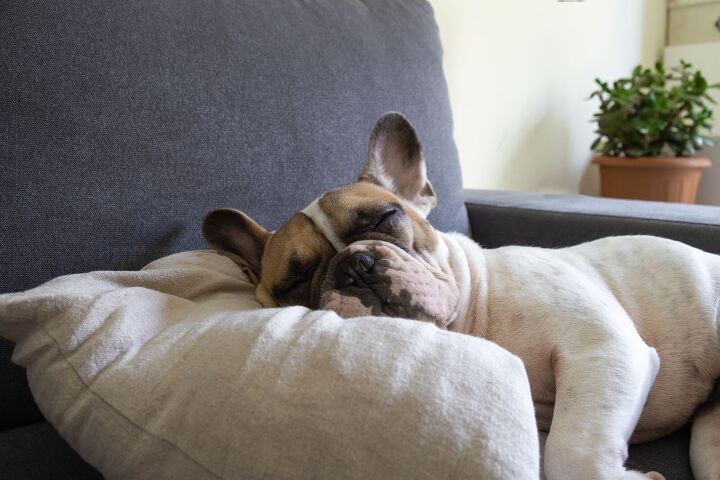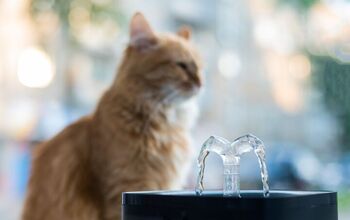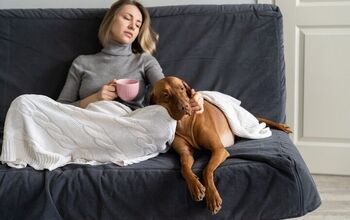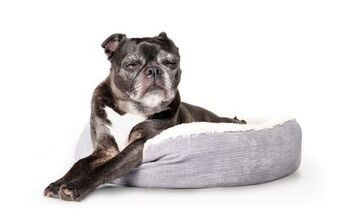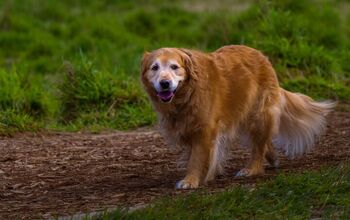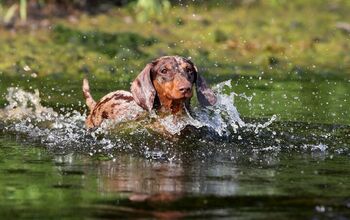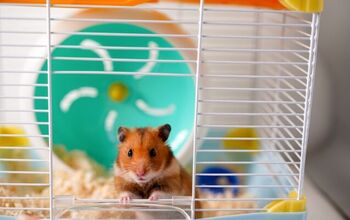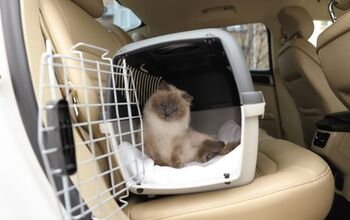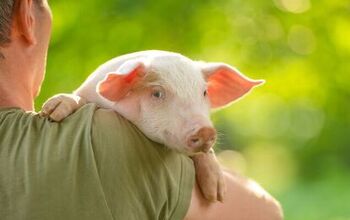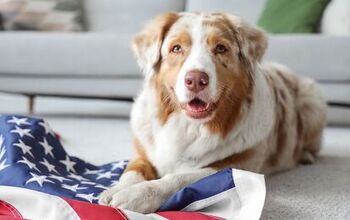Can Dogs Have Sleep Apnea?

If you’ve ever heard your dog snoring, you might’ve wondered if sleep apnea is a condition that can affect canines like it does humans. The answer is, yes, dogs can have sleep apnea, although it is rare, and certain breeds may be at greater risk. Below is some information on sleep apnea in dogs, including research, symptoms, and possible treatment options.
The Research Into Sleep Apnea in Dogs
Because good quality sleep plays a key role in overall health for people and their pets, researchers from the University of Helsinki wanted to learn more about sleep-disordered breathing in canine companions. To do so, they decided to take a different approach by utilizing a neckband that allowed them to gain valuable insights while dogs slept at home rather than in a lab.
With the help of this study, experts concluded that certain dog breeds have a higher risk of sleep apnea. More specifically, dogs who have short snouts are more prone to sleep-disordered breathing, and they also tend to snore more. This means that brachycephalic breeds – such as the Shih Tzu, Bulldog, French Bulldog, Boston Terrier, Pug, and Pekingese – have a greater risk of developing problems like sleep apnea.
Although a dog’s breed and facial structure can play a role, there are other reasons why your pet might develop sleep apnea. Therefore, all pet parents, including those with canines who have long snouts, should know the signs of sleep-disordered breathing in dogs so they can take action with the help of their vet if symptoms arise.
Causes, Symptoms, and Treatments for Canine Sleep Apnea
A dog with obstructive sleep apnea will have trouble breathing while they’re asleep, and might stop breathing one or more times because of constricted airways. Their sleep is interrupted, so they don’t get the deep rest that they need.
Not surprisingly, this can lead to a dog feeling drowsy during the day when they would otherwise be energetic and active. But other problems can also arise because a lack of sleep can weaken the immune system, too.
Here are some of the symptoms of sleep apnea in dogs:
Snoring or changes in breathing – Not all snoring is a sign of sleep apnea. But if you notice that your dog’s snoring changes, they snore loudly, or there are changes in the way they breathe while asleep (e.g., you notice that they stop breathing for a few moments), discuss the symptoms with a veterinarian.
Waking up numerous times – You might notice your dog waking up suddenly before going back to sleep, or being woken up by their own snoring. Or, they might stop breathing and then wake up gasping for air. Also, if your dog often changes their sleeping position, it might be in an effort to find a way to breathe easier while asleep.
Changes in behavior and daytime sleepiness – If a dog doesn’t get enough sleep at night, they’ll be more tired during the day. But they might also show other behavioral changes, including negative behaviors like aggression.
What are some of the causes of sleep apnea in dogs?
As mentioned above, experts have found that dogs with flat faces can be at risk of sleep problems, so this is something to keep in mind if you share your home with a brachycephalic dog.
Your pet’s weight may affect how well they breathe. If your dog is obese or overweight, the extra weight might make it harder to breathe properly while sleeping, so keep track of your companion’s weight, and know what their optimal weight range is.
Also, allergies and medical problems, such as inflammation or obstructions, could be to blame for a dog having difficulty breathing while they’re trying to sleep.
Your veterinarian can discuss treatment options
If your dog is exhibiting sleep apnea symptoms, talk to your veterinarian to figure out the cause and get the right treatment – that way, you can address your pet’s ailments before they progress and cause other issues.
For example, if an illness or allergies are to blame, your vet may prescribe medications. Or, if your dog has severe Brachycephalic Obstructive Airway Syndrome (BOAS), your vet might recommend surgery.
If your veterinarian determines that your dog is obese or overweight, they can give you tips on how to help your pet get down to a healthy weight safely. The plan might include switching to a dog food that’s formulated for weight loss, such as Orijen Fit and Trim, which also supports skin and coat health and immune health with ingredients like poultry, fish, and organs.
Note: Although people can use a continuous positive airway pressure machine (also known as a CPAP machine) to treat their sleep apnea, this option isn’t available for dogs.
Keep an Eye on How Your Dog Sleeps
Dogs can have sleep apnea, so be sure to take note of any changes in your pet’s breathing while they’re sleeping, especially if you have a brachycephalic pooch. By working with your vet, you can take steps to help your pet get the deep, restful sleep they need.

Lisa Selvaggio is a freelance writer and editor, and our resident cats-pert, with certifications in pet nutrition and pet first aid. She enjoys producing content that helps people understand animals better so they can give their pets a safe and happy home.
More by Lisa Selvaggio



